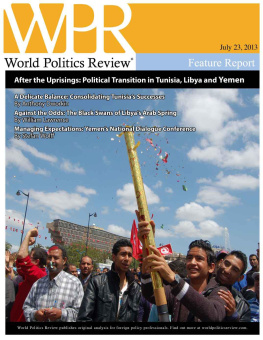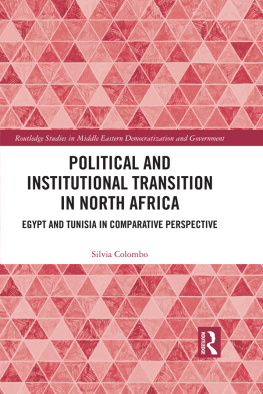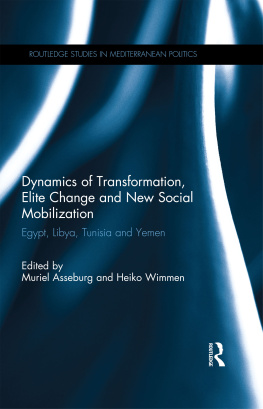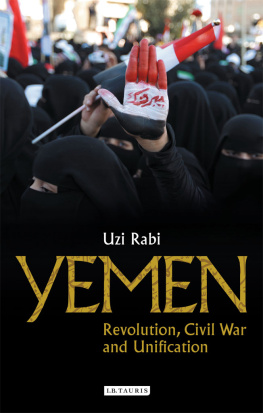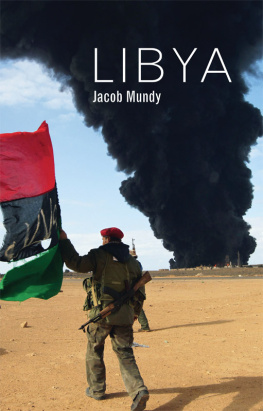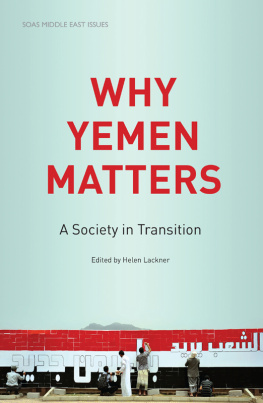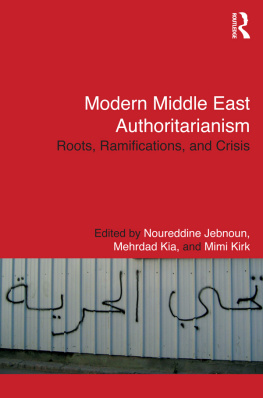Dworkin Anthony - After the Uprisings: Political Transition in Tunisia, Libya and Yemen
Here you can read online Dworkin Anthony - After the Uprisings: Political Transition in Tunisia, Libya and Yemen full text of the book (entire story) in english for free. Download pdf and epub, get meaning, cover and reviews about this ebook. year: 2013, publisher: World Politics Review, genre: Politics. Description of the work, (preface) as well as reviews are available. Best literature library LitArk.com created for fans of good reading and offers a wide selection of genres:
Romance novel
Science fiction
Adventure
Detective
Science
History
Home and family
Prose
Art
Politics
Computer
Non-fiction
Religion
Business
Children
Humor
Choose a favorite category and find really read worthwhile books. Enjoy immersion in the world of imagination, feel the emotions of the characters or learn something new for yourself, make an fascinating discovery.
- Book:After the Uprisings: Political Transition in Tunisia, Libya and Yemen
- Author:
- Publisher:World Politics Review
- Genre:
- Year:2013
- Rating:5 / 5
- Favourites:Add to favourites
- Your mark:
- 100
- 1
- 2
- 3
- 4
- 5
After the Uprisings: Political Transition in Tunisia, Libya and Yemen: summary, description and annotation
We offer to read an annotation, description, summary or preface (depends on what the author of the book "After the Uprisings: Political Transition in Tunisia, Libya and Yemen" wrote himself). If you haven't found the necessary information about the book — write in the comments, we will try to find it.
Dworkin Anthony: author's other books
Who wrote After the Uprisings: Political Transition in Tunisia, Libya and Yemen? Find out the surname, the name of the author of the book and a list of all author's works by series.
After the Uprisings: Political Transition in Tunisia, Libya and Yemen — read online for free the complete book (whole text) full work
Below is the text of the book, divided by pages. System saving the place of the last page read, allows you to conveniently read the book "After the Uprisings: Political Transition in Tunisia, Libya and Yemen" online for free, without having to search again every time where you left off. Put a bookmark, and you can go to the page where you finished reading at any time.
Font size:
Interval:
Bookmark:
Compilation 2013 World Politics Review LLC.
A Delicate Balance: Consolidating Tunisias Successes 2013 Anthony Dworkin. Used under license.
Against the Odds: The Black Swans of Libyas Arab Spring 2013 William Lawrence. Used under license.
Managing Expectations: Yemens National Dialogue Conference 2013 Stefan Wolff. Used under license.
ISBN: 978-1-939907-17-2
First published in 2013 by World Politics Review
World Politics Review
231 Front St, Suite 204
Brooklyn, NY 11201
www.worldpoliticsreview.com
(202) 596-9771
All rights reserved. No part of this publication may be reproduced, distributed, or transmitted in any form or by any means, including photocopying, recording, or other electronic or mechanical methods, without the prior written permission of the publisher, except in the case of brief quotations embodied in critical reviews and certain other noncommercial uses permitted by copyright law. For permission requests, email the publisher at reprints@worldpoliticsreview.com.
Published in the United States of America
Cover image: Protest in Tunis, Tunisia, May 1, 2012 (photo by Flickr user scossargilbert licensed under the Creative Commons Attribution 2.0 Generic license).
Contents
Table of Contents
A Delicate Balance: Consolidating Tunisias Successes
By Anthony Dworkin
Two and a half years after Tunisia launched the wave of uprisings that spread across the Arab world, the North African country still provides the best hope for the establishment of a sustainable democracy in the region. The development of Tunisias transition has been fraught and at times precarious, but at critical moments the countrys political evolution has displayed a self-correcting character. Every time Tunisia has confronted the risk of a breakdown of politics or the fracturing of society, it has managed to pull back from the brink. Tunisia remains dangerously polarized, but the countrys political and social groups have so far just about managed to keep the tensions between them within the nascent political system, rather than letting them break apart the system as a whole.
The transition in Tunisia continues to face a number of risks. In the short term, Tunisia must deal with the impact of developments in Egypt. The Egyptian armys forceful deposition of President Mohammed Morsi and the broader social backlash against the Muslim Brotherhoods political dominance have created cross-currents that are rocking Tunisia and threatening to exacerbate the countrys pre-existing tensions. There is also a continuing shadow of political violence, though it has receded somewhat since the killing of the leftist political leader Chokri Belaid in February 2013. Most fundamentally, perhaps, there is a danger that the countrys slow pace in realizing any tangible benefits from the revolution may create a crisis of unmet expectations. Fundamental reform of the state has hardly begun, and Tunisias economic and social problems loom as large today as they did in the period before the countrys revolution took place.
These challenges are real, but they shouldnt detract from the significance of what Tunisia is on track to achieve. The country is close to agreeing on a new constitution that seems likely to have the support of most of Tunisias political groups. Assuming the constitution is approved in the next few months, it would be followed by presidential and parliamentary elections, perhaps early next year. If this process can be completed without any major disruption, it would mean that Tunisia had succeeded in overcoming one of the fundamental difficulties that the post-revolutionary transitions in the Arab world have faced (.pdf): building consensus on the ground rules for a new political settlement, in societies where there was no pre-existing mechanism for mediating between social groups with widely differing beliefs, affiliations and interests.
There are several distinctive aspects to Tunisia that help explain why its transition has not been derailed so far, despite the problems it has confronted. Its army has little tradition of involvement in political life and made no attempt to take power following the departure of the former strongman, Zine El Abedine Ben Ali, in January 2011. Tunisia is small and comparatively homogenous, and its position means it has not become a focus for competing geopolitical interests in the same way as Egypt. It also benefits from a higher level of education and greater economic development than Egypt. Despite these differences, Tunisia has in fact faced many of the same difficulties as Egypt: tensions between Islamic and secular political parties, battles over freedom of expression and struggles focused on the judiciary, media and constitution. But, compared to Egypt, the struggles over these flashpoint issues have played out in a more contained way in Tunisia. This suggests that an essential factor in determining Tunisias political path has been the nature of the countrys political groups and, above all, the balance of power among them.
Tunisia held nationwide elections in October 2011, with voters selecting members of an assembly that was to write the countrys new constitution while also acting as an interim legislature. The Islamist party Ennahda won 41 percent of the seats and has governed in coalition with two smaller secular center-left parties, Congress for the Republic (CPR) and the Democratic Forum for Labor and Liberties, generally known as Ettakatol. In an arrangement referred to as the troika, the parties divided the main political positions among them. CPRs Moncef Marzouki became president; Ennahdas Hamadi Jebali became prime minister; and Mustafa ben Jaafar from Ettakatol was appointed as speaker of the Constituent Assembly. This coalition arrangement was hailed as an important precedent for the Arab world. Marzouki said in 2012 that the coalitions strategy had been (.pdf) to seek consensus, based on a coalition of moderate Islamists and moderate secularists, so that we can govern in the center.
The coalitions political path has been rocky. Both coalition partners and opposition groups have complained that Ennahda was trying to accumulate power for itself by appointing its partisans to public positions. During 2012 there was a steady stream of resignations from the ranks of Ennahdas coalition partners in the assembly, with representatives complaining that their leaders had allowed their parties to be marginalized. One of the parliamentarians who resigned from Ettakatol, Selim ben Abdessalem, told me last autumn that Ennahdas aim is to put their hands on the state, and that the party has appointed loyalists without qualifications to key positions in local government and public administration, rather than choosing skilled technocrats. A key focus of criticism was the fact that Ennahda had put its representatives into the key sovereign ministries of foreign affairs, the interior and justice, instead of giving them to neutral appointees.
These controversies speak above all to the difficulties of defining the space for political discretion during a time of transition. It is hardly surprising that Ennahda, after being suppressed for decades, should wish to redress its previous exclusion by appointing members or sympathizers to public office. But it is equally understandable that secularists, troubled by the notion of an Islamic party in power, should worry that these moves were part of an agenda of capturing the state. Fears of an attempted power-grab notwithstanding, the biggest failing of Ennahdas approach to state institutions has been the absence of any credible project of reform. Its handling of the judiciary is a case in point. While many of the judges appointed under Ben Ali were widely agreed to be corrupt, the governments response was to dismiss 75 of them without any clear criteria or due process, giving rise to concerns that it was trying to undermine the independence of the judiciary and pursuing a sectarian agenda.
Font size:
Interval:
Bookmark:
Similar books «After the Uprisings: Political Transition in Tunisia, Libya and Yemen»
Look at similar books to After the Uprisings: Political Transition in Tunisia, Libya and Yemen. We have selected literature similar in name and meaning in the hope of providing readers with more options to find new, interesting, not yet read works.
Discussion, reviews of the book After the Uprisings: Political Transition in Tunisia, Libya and Yemen and just readers' own opinions. Leave your comments, write what you think about the work, its meaning or the main characters. Specify what exactly you liked and what you didn't like, and why you think so.

